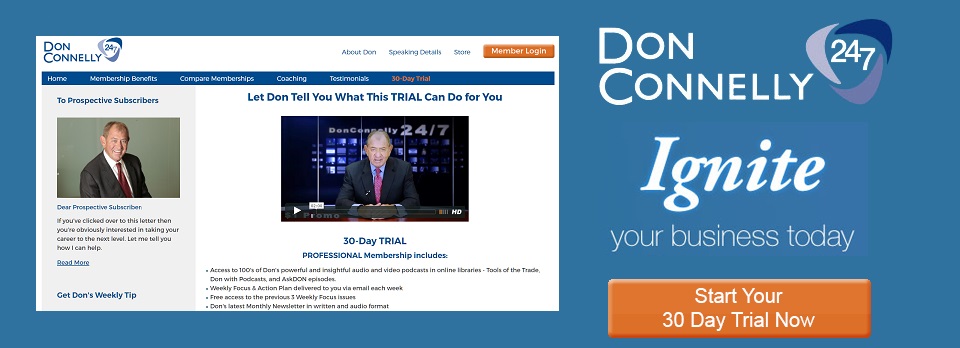5 Reasons to Be an Accountable Financial Advisor
 Many advisors know ‘what’ they do, but they don’t know what they ‘need to do’ to achieve their goals, and enjoy real success. They leave their potential undeveloped. It doesn’t matter how smart you are, how confident you are or how much you care about your clients, you will find success elusive, unless you become accountable. Accountability is the secret to your success and here’s why.
Many advisors know ‘what’ they do, but they don’t know what they ‘need to do’ to achieve their goals, and enjoy real success. They leave their potential undeveloped. It doesn’t matter how smart you are, how confident you are or how much you care about your clients, you will find success elusive, unless you become accountable. Accountability is the secret to your success and here’s why.
Your clients look to you for leadership
Your clients look to you as a leader, so you need to take responsibility for the advice you give them. You need to be accountable for your actions and admit that sometimes you’re wrong. Don’t wait for clients to ‘hold’ you accountable – make yourself accountable before that happens, not just to your clients but to yourself personally.
Explaining our actions is a humbling experience, but don’t let that put you off. To not feel the need to be accountable is arrogant; explaining away events to make out you weren’t accountable will not gain you respect. Naturally we can’t foresee the future, we can only have a take on it, and sometimes it doesn’t work out. But don’t procrastinate, take the hit.
Your accountability will seal your reputation
When you take responsibility for your decisions and actions you don’t need to worry about your reputation, since it will take care of itself – your reputation is a reflection of your accountability.
Make your goals achievable by becoming accountable
What can you do better? You’re where you are based on the choices you’ve made, and you may want to make new or different choices going forward to help you achieve your goals. Figure out the goals you want to hit – hitting them is how you measure achievement. With nothing to hit you will meander. Imagine what you want and work backwards. Write goals down, be realistic, don’t be abstract, think in concrete terms.
Make sure your goals are attainable. Great pianists don’t become great overnight, they get there with years of constant practice and the same goes for financial advisors. To constantly fall short of your own expectations will discourage you, so set reasonable goals, write them down and keep them in plain sight.
Learn to do a few things well rather than lots of things badly, don’t spread yourself too thin, focus on the important things. Keep physically and mentally healthy, and stay away from negative people. Take rejection for what it is, a rejection of your ideas rather than you personally.
Define your performance on a timeline, monitor performance and make daily adjustments. Stick to what you plan and focus on what needs to be done. Make yourself accountable, now and in the future.
Accountability allows you to put your focus where it’s needed
Develop the self-discipline to do what needs to be done when it needs to be done to get the results you want, both professionally and personally. Focus on what you can control i.e. ‘You’ and the things ‘you’ do. Don’t get overwhelmed by distractions. Every morning write a list of tasks that need to be done that day. Then make sure you do them.
Every day ask yourself if you did all the tasks on your list. If not why not? What can you do to be better prepared? What distractions did you allow to get in your way and how do you need to change? What adjustments can you do to make sure you meet your task list tomorrow? Do you need to delegate more? Become focused on what you need to do to attain your goals so you can make progress and achieve success. Create effective tracking systems to stay on track and give you a better potential to achieve your goals.
Becoming accountable will make you more optimistic
Getting a mentor can help you to become more accountable – and more optimistic. Working with a coach will enable you to make action plans, document your progress and measure how you’re doing. A mentor can teach you to think and act more positively and more resourcefully, and help you identify where you are today so you can move to a place you want to be tomorrow.
By focusing on your character strengths and goals you can evoke your inner ‘excellent’, and make changes. By setting your own goals and action plans, due dates and tracking metrics you can measure results. A mentor can help you stay on track, personally, marketing-wise and goal wise. They can help you take responsibility and become more accountable.
Only you have the power to determine how your career turns out, not your boss, not your clients but you.




